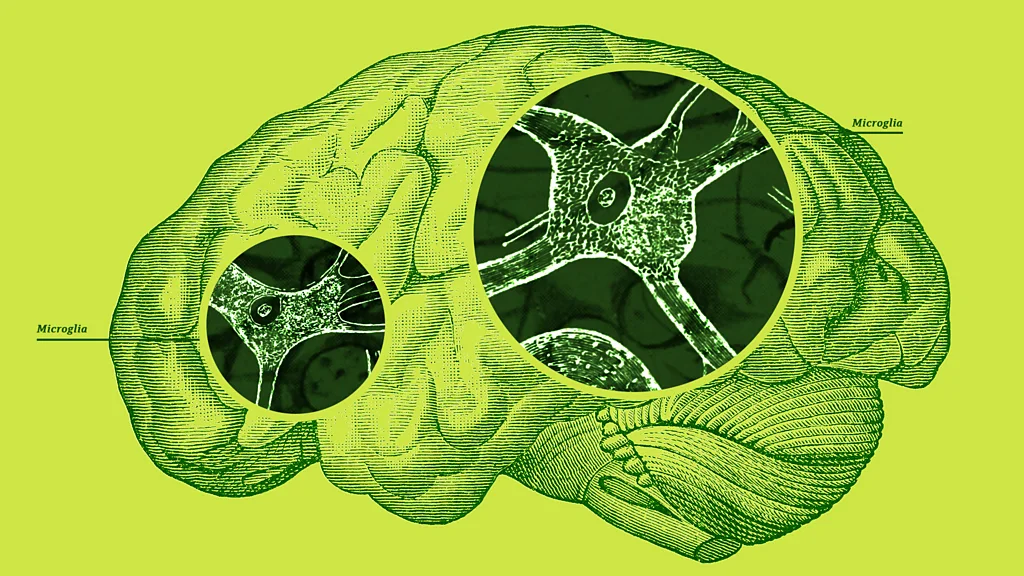
The Cells Protecting Your Brain: Are Microglia Behind Chronic Diseases?
Microglia, the brain’s resident immune cells, are crucial for maintaining brain health by patrolling blood vessels and eliminating pathogens. However, when microglia go rogue, they may contribute to chronic conditions like Alzheimer’s disease, depression, and addiction.
Historically, microglia were considered simple defenders, but recent studies suggest they have a more complex role, influencing pain, addiction, and even brain disorders. Microglia make up about 10% of brain cells, constantly extending and retracting branches to monitor their environment. During normal conditions, they prune unnecessary synaptic connections and maintain the protective myelin layer around neurons, supporting healthy brain function.
When an infection or harmful substance is detected, microglia switch into an activated state, releasing inflammatory cytokines. This response helps the body fight threats, but if prolonged, it may result in chronic inflammation, which could cause damage. Activated microglia are now linked to a variety of diseases and conditions, including addiction, chronic pain, and Alzheimer’s.
For instance, microglia may contribute to addiction by recognizing drugs like opiates or cocaine as threats, releasing cytokines that strengthen the craving for these substances. This changes the brain’s structure, leading to long-term drug-seeking behavior. Researchers have found that blocking microglial activation can reduce drug addiction behaviors in animals, showing promise for future treatments.
Microglia also play a significant role in Alzheimer’s disease. As we age, these cells become more likely to overreact, leading to chronic inflammation. Repeated activation by amyloid plaques—a hallmark of Alzheimer’s—causes microglia to enter a rogue state, releasing toxic chemicals, engulfing healthy neurons, or over-pruning synapses. All of these contribute to the cognitive decline seen in Alzheimer’s.
Emerging research points to microglia as a factor behind symptoms of long Covid, such as brain fog. Chronic inflammation due to viral infections could lead to microglia staying activated, resulting in impaired cognitive function. Future treatments may target these hyperactive cells, offering hope for managing a range of neurological disorders.
Links:
- External Link: BBC
- Internal Link: Kenkou Land






